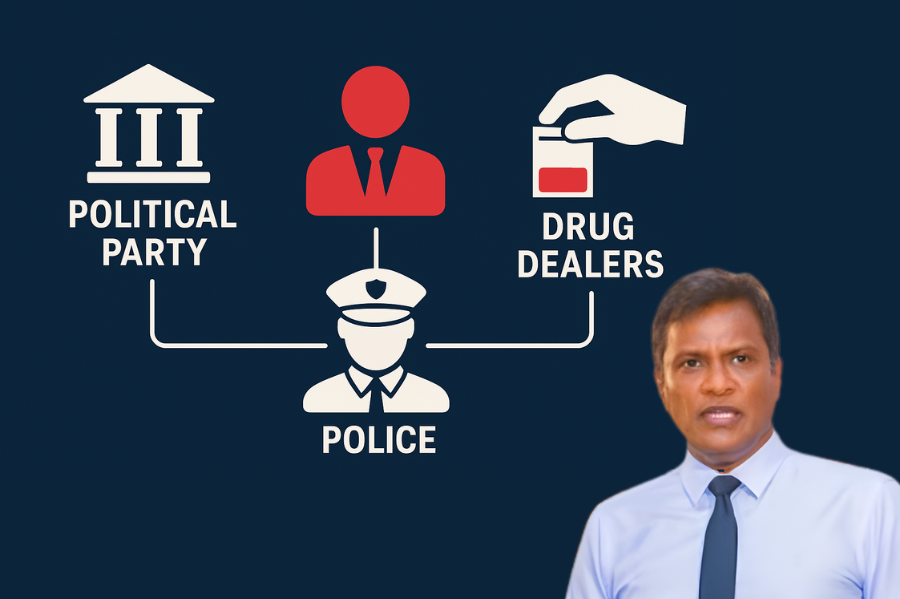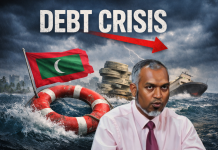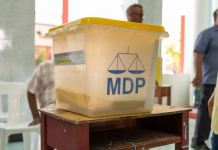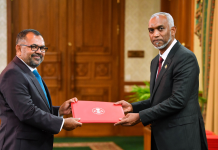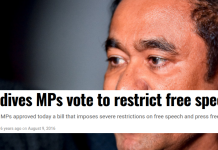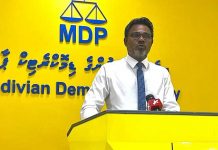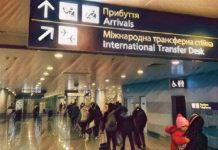Just three days ago, on Monday, President Mohamed Muizzu proudly announced that his administration had eliminated all active criminal gangs in the Maldives as part of its “two-year achievements.” But a shocking allegation from former Home Minister Umar Naseer has cast serious doubt on that claim.
Speaking on SSTV’s Baaru Hathareh program, Umar Naseer accused the ruling People’s National Congress (PNC) of maintaining ties with powerful drug networks operating across the country. According to Umar, these networks are not only thriving—but directly influencing state institutions and government employees.
Umar claimed that around 3,000 state workers are currently on the payroll of drug gangs. These include police officers, corrections officers, and judicial staff, all allegedly paid to protect gang interests and facilitate their operations.
“They’re not just on the streets,” he said. “They’re wearing white shirts and party-themed ties, running businesses, and sitting in Parliament. This is a massive infiltration.”
Umar has long argued for stronger actions against drug trafficking, reiterating his position that all drug shipments passing through Maldivian waters should be intercepted and destroyed immediately. He criticized successive governments for failing to seize assets from drug dealers over the past 20 years, despite existing laws that permit such action.
He further alleged that the Bank of Maldives (BML) is unable—or unwilling—to freeze the bank accounts of major gang leaders, enabling them to continue withdrawing money freely. According to Umar, this financial freedom has allowed gang networks to grow stronger, not weaker.
“Every government has come under gang influence,” he said, adding that some current Members of Parliament have criminal records related to drugs.
These revelations directly contradict President Muizzu’s recent boast that gangs have been “eliminated” under his leadership. Instead, Umar’s claims suggest that gang influence may have reached deeper into state institutions than ever before—raising urgent questions about the government’s credibility, accountability, and the true extent of criminal infiltration in the Maldives.

